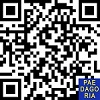INDEPENDENT CURRICULUM IMPLEMENTATION IN INDONESIA: STRATEGIES, CHALLENGES, AND LESSONS LEARNED
Abstract
Abstrak: Kurikulum Merdeka, inisiatif pendidikan transformatif di Indonesia, bertujuan untuk mengatasi kesenjangan pendidikan di wilayah perkotaan, pedesaan, dan 3T (tertinggal, terdepan, terluar). Penelitian ini bertujuan untuk menyelidiki secara sistematis strategi yang digunakan dalam penerapan kurikulum Independen dan hasilnya di seluruh wilayah perkotaan, pedesaan, dan perbatasan. Melalui pendekatan kualitatif dan metode studi kasus, penelitian ini mengumpulkan data melalui observasi, studi dokumen dan wawancara dengan pendidik dan pemangku kepentingan dari berbagai latar belakang. Hasil penelitian menunjukkan bahwa OJL adalah strategi paling efektif, meningkatkan kompetensi guru dan keterampilan mengajar praktis. Integrasi Teknologi meningkatkan keterlibatan siswa di perkotaan, tetapi terkendala infrastruktur di wilayah terpencil. Keterlibatan Komunitas memastikan relevansi kurikulum dan membangun kepercayaan lokal, terutama di wilayah 3T. Adaptasi Geografis mengatasi tantangan logistik dengan menyesuaikan kurikulum untuk kebutuhan regional, sedangkan Integrasi Kebijakan menyelaraskan prioritas nasional dengan implementasi lokal meskipun menghadapi kendala birokrasi. Temuan ini menekankan perlunya kombinasi solusi sistemik yang skalabel dengan adaptasi lokal untuk mencapai hasil pendidikan yang adil dan berkelanjutan. Kurikulum Merdeka menawarkan model reformasi pendidikan yang dapat direplikasi secara global, menunjukkan bagaimana strategi yang terfokus dapat mengurangi kesenjangan dan meningkatkan hasil pembelajaran.
Abstract: The Independent Curriculum, a transformative educational initiative in Indonesia, aims to address educational disparities across urban, rural, and frontier regions. This study aims to systematically investigate the strategies employed in the implementation of Independent curriculum and their outcomes across urban, rural, and frontiers regions. Using a qualitative approach and case study methods, the research collected data through observations, document analysis, and interviews with educators and stakeholders from diverse backgrounds. The findings reveal that OJL is the most effective strategy, enhancing teacher competence and practical teaching skills. Technology Integration increased student engagement in urban areas but faced infrastructural limitations in remote regions. Community Engagement ensured curriculum relevance and built local trust, particularly in frontier areas. Geographic Adaptations addressed logistical challenges by tailoring the curriculum to regional needs, while Policy Integration aligned national priorities with local implementation despite bureaucratic obstacles. These findings highlight the need for a combination of scalable systemic solutions and localized adaptations to achieve equitable and sustainable educational outcomes. The Independent Curriculum offers a replicable model for global educational reform, demonstrating how targeted strategies can reduce disparities and improve learning outcomes.
Keywords
Full Text:
PDFReferences
Aisah, I., Nurhayati, S., & Rukanda, N. (2024). ECCE Principals’ Strategy to Improve Teacher Competence in Implementing the Independent Curriculum. JURNAL INDRIA (Jurnal Ilmiah Pendidikan Prasekolah Dan Sekolah Awal), 9(1), 18–31.
Anggini, P., Husna, H., Rambe, N. F. S., Nasution, A. K., Lubis, I. H., & Harahap, S. H. (2024). Independent Curriculum In Improving The Quality Of Education. Education Achievement: Journal of Science and Research, 366–373. https://doi.org/10.51178/jsr.v5i2.1872
Anugrahwanto, R. B., & Nurhayati, S. (2020). Implementation of Experiential Learning Approach To the Training of Character Development of Civil Servants in Ministry of Transportation Environment. Empowerment: Jurnal Ilmiah Program Studi Pendidikan Luar Sekolah, 9(2), 254–261. https://doi.org/https://doi.org/10.22460/EMPOWERMENT.V9I2P254-261.1896
Braun, V., & Clarke, V. (2006). Using thematic analysis in psychology. Qualitative Research in Psychology, 3(2), 77–101. https://doi.org/10.1191/1478088706qp063oa
Brodie, K. (2021). Teacher agency in professional learning communities. Professional Development in Education, 47(4), 560–573. https://doi.org/10.1080/19415257.2019.1689523
Butler, D., Leahy, M., Twining, P., Akoh, B., Chtouki, Y., Farshadnia, S., Moore, K., Nikolov, R., Pascual, C., Sherman, B., & Valtonen, T. (2018). Education Systems in the Digital Age: The Need for Alignment. Technology, Knowledge and Learning, 23(3), 473–494. https://doi.org/10.1007/s10758-018-9388-6
Connolly, P., Hanratty, J., Hughes, J., Chapman, C., & Blaylock, D. (2019). PROTOCOL: Protocol for a systematic review: Inter‐school collaborations for improving educational and social outcomes for children and young people. Campbell Systematic Reviews, 15(1–2). https://doi.org/10.1002/cl2.1011
Cushion, C. J. (2018). Reflection and reflective practice discourses in coaching: a critical analysis. Sport, Education and Society, 23(1), 82–94. https://doi.org/10.1080/13573322.2016.1142961
Eradze, M., De Martino, D., Tinterri, A., Albó, L., Bardone, E., Sunar, A. S., & Dipace, A. (2023). After the Pandemic: Teacher Professional Development for the Digital Educational Innovation. Education Sciences, 13(5), 432. https://doi.org/10.3390/educsci13050432
Fadlyansyah, R. M., & Nurhayati, S. (2020). THE IMPACTS OF TUTORSâ€TM COMMUNICATION PATTERN TOWARDS IMPROVING THE TRAINEESâ€TM LEARNING QUALITY AT THE WORK TRAINING INSTITUTE (LPK). Empowerment: Jurnal Ilmiah Program Studi Pendidikan Luar Sekolah, 9(2), 270–277.
Firdaus, Y. R., Nurhayati, S., & Noor, A. H. (2024). The Effect of Religious Understanding, Social Welfare, and Cultural Values of The Community Towards The Sacred Tomb. Jurnal Ilmiah Profesi Pendidikan, 9(2), 865–874.
Ghofur, E. H., & Nurhayati, S. (2023a). Multimedia-Based Learning Media Development to Improve Early Childhood Expressive Language Ability. Jurnal Obsesi: Jurnal Pendidikan Anak Usia Dini, 7(2), 2373–2382.
Ghofur, E. H., & Nurhayati, S. (2023b). Multimedia-Based Storytelling Learning Media Effectivity For Early Childhood’s Expressive Language Skill Development. Jurnal Obsesi: Jurnal Pendidikan Anak Usia Dini, 7(6), 6677–6686.
Gondiawati, N., & Nurhayati, S. (2024). Child-Centered Learning In The Home Environment: Implementation And Challenges. Jurnal Simki Pedagogia, 7(1), 13–23. https://doi.org/10.29407/jsp.v7i1.502
Goodyear, V. A., Parker, M., & Casey, A. (2019). Social media and teacher professional learning communities. Physical Education and Sport Pedagogy, 24(5), 421–433. https://doi.org/10.1080/17408989.2019.1617263
Green, C., Mynhier, L., Banfill, J., Edwards, P., Kim, J., & Desjardins, R. (2020). Preparing education for the crises of tomorrow: A framework for adaptability. International Review of Education, 66(5–6), 857–879. https://doi.org/10.1007/s11159-020-09878-3
Hoffman, J. V., & Duffy, G. G. (2016). Does Thoughtfully Adaptive Teaching Actually Exist? A Challenge to Teacher Educators. Theory Into Practice, 55(3), 172–179. https://doi.org/10.1080/00405841.2016.1173999
Iskandar, A., Winata, W., Kurdi, M. S., Sitompul, P. H. S., Kurdi, M. S., Nurhayati, S., Hasanah, M., Haluti, F., & others. (2023). Peran Teknologi Dalam Dunia Pendidikan. Yayasan Cendekiawan Inovasi Digital Indonesia.
Iswahyudi, M. S., Wulandari, R., Samsuddin, H., Sukowati, I., Nurhayati, S., Makrus, M., Amalia, M. M., Faizah, H., Febianingsih, N. P. E., & others. (2023). Buku Ajar Metodologi Penelitian. PT. Sonpedia Publishing Indonesia.
Latif, M. A., Amir, R., Marzuki, K., Gaffar, F., & Nurhayati, S. (2023). Kolaborasi Strategis Lembaga PAUD dan Orang Tua di Era Digital melalui Program Parenting. Jurnal Obsesi : Jurnal Pendidikan Anak Usia Dini, 7(3), 3169–3180. https://doi.org/10.31004/obsesi.v7i3.4485
Marsegi, S. M., Nurhayati, S., Ansori, A., & Hendriana, H. (2023). Digital-Based Portfolio Assessment Competence of Early Childhood Educators. Jurnal Obsesi : Jurnal Pendidikan Anak Usia Dini, 7(1), 251–259. https://doi.org/10.31004/obsesi.v7i1.3360
Meilasari, D., Sukiman, S., Ukhtiani, M. R., Wati Fajzrina, L. N., Febyarum, L., Sari, D. M., & Insiyah, M. (2023). An Analysis of Early Childhood Education Curriculum Development in Singapore and Finland. Al-Athfaal: Jurnal Ilmiah Pendidikan Anak Usia Dini, 6(2), 165. https://doi.org/10.24042/00202361915700
Milyane, T. M., Darmaningrum, K., Natasari, N., Setiawan, G. A., Sembiring, D., Irwanto, I., Kraugusteeliana, K., Fitriyah, N., Sutisnawati, A., Sagena, U., Nurhayati, S., Indriana, I. H., & Putri, M. S. (2023). Literasi Media Digital.
Musa, S., & Nurhayati, S. (2024). Educators’ Resilience Amidst Digital Era Challenges: Case Study in Indonesia. Journal of Electrical Systems, 20(4s), 832–840. https://doi.org/10.52783/jes.2121
Musa, S., Nurhayati, S., Jabar, R., Sulaimawan, D., & Fauziddin, M. (2022). Upaya dan tantangan kepala sekolah PAUD dalam mengembangkan lembaga dan memotivasi guru untuk mengikuti program sekolah penggerak. Jurnal Obsesi: Jurnal Pendidikan Anak Usia Dini, 6(5), 4239–4254.
Musa, S., Nurhayati, S., & Zubaedah, R. (2022). PENINGKATAN KOMPETENSI PEMASARAN PRODUK WARGA BELAJAR PUSAT KEGIATAN BELAJAR MASYARAKAT MELALUI PELATIHAN MARKETPLACE DAN CANVA. JMM (Jurnal Masyarakat Mandiri), 6(6), 4533. https://doi.org/10.31764/jmm.v6i6.10912
Musa, S., Nurhayati, S., Zubaedah, R., & Uthartianty, R. (2023). Merdeka Belajar Untuk Semua. LovRinz Publishing.
Musa, S., Suherman, A. M., Sujarwo, S., & Nurhayati, S. (2024). Continuous professional growth: A study of educators’ commitment to lifelong learning. Jurnal Cakrawala Pendidikan, 43(2), 502–512. https://doi.org/10.21831/cp.v43i2.66654
Muslimah, M., Ayuningtyas, V., & Nurhayati, S. (2023). Strengthening the Pancasila Student Profile through the Process of Learning Indonesian Traditional Dance Project in the Independent Curriculum. Jurnal Pendidikan Tambusai, 7(2), 3901–3910.
Mustari, M., & Nurhayati, S. (2024). Multifaceted Instructional Leadership of School Principals to Improve Student Character in The Digital Era. Al-Hayat: Journal of Islamic Education, 8(2), 488–504.
Nurfadila, A., Mahyuni, M., Sujana, I. M., & Arifuddin, A. (2023). Problems in the Implementation of Independent Curriculum (IC) A Case Study at SMAN 1 Masbagik in Academic Year 2022/2023. Jurnal Ilmiah Profesi Pendidikan, 8(3), 1620–1630. https://doi.org/10.29303/jipp.v8i3.1471
Nurhayati, S. (2018). Pengembangan Model Pelatihan Dengan Pendekatan Experiential Learning Untuk Meningkatkan Kompetensi Asesmen Pembelajaran Bagi Pendidik Paud Di Kota Cimahi. Universitas Pendidikan Indonesia.
Nurhayati, S., Dina, I., Boriboon, G., & Jacob, U. S. (2024). Harmonizing Cultural Literacy and Empowerment: A Community Education Approach through Angklung Public Class. IJECA (International Journal of Education and Curriculum Application), 7(3), 404–419.
Nurhayati, S., Fitri, A., Amir, R., & Zalisman, Z. (2024). Analysis of the Implementation of Training on Digital-based Learning Media to Enhance Teachers’ Digital Literacy. AL-ISHLAH: Jurnal Pendidikan, 16(1), 545–557. https://doi.org/10.35445/alishlah.v16i1.4029
Nurhayati, S., Hidayat, A. W., Awan, I. S., & Noviatul, D. (2023). The Effectiveness of Virtual Classroom Learning in Islamic Early Childhood Education. 2nd Paris Van Java International Seminar on Health, Economics, Social Science and Humanities (PVJ-ISHESSH 2021), 2023, 428–437. https://doi.org/10.18502/kss.v8i4.12927
Nurhayati, S., Kurnianta, P. D. M., & Anggraeni, A. F. (2024). Pengantar Karya Tulis Ilmiah. PT. Sonpedia Publishing Indonesia.
Nurhayati, S., & Lahagu, S. E. (2024). Pendidikan Sepanjang Hayat. PT. Sonpedia Publishing Indonesia.
Nurhayati, S., Musa, S., Boriboon, G., Nuraeni, R., & Putri, S. (2021). Community Learning Center efforts to improve information literacy in the community for cyber crime prevention during a pandemic. Journal of Nonformal Education, 7(1), 32–38.
Nurhayati, S., & Novianti, D. (2024). Enhancing Digital Competence: A Comprehensive Digital Educational Games Training Needs Analysis for PAUD Teachers. Jurnal Smart Paud, 7(2), 169–181.
Nurhayati, S., Qudsi, N. A., Rukanda, N., & Fitri, A. (2023). Parents-School Strategic Collaborations in Early Childhood School From-Home Learning During the Pandemic. AL-ISHLAH: Jurnal Pendidikan, 15(1), 964–971. https://doi.org/10.35445/alishlah.v15i1.2605
Nurhayati, S., & Rumsari, C. (2020). Social Skill Development In The Game Oray-orayan Traditional Children Of West Java. The 2nd International Conference on Science Education in Industrial Revolution 4.0 (ICONSEIR 2019), ISBN 978-1-63190-252-9 ISSN 2593-7650, https--eudl.
Nurhayati, S., Tersta, F. W., Karwanto, K., Mintarsih, M., Jasiah, J., Sulaiman, S., Mustapa, N., Sari, I. N., & Djamil, M. M. N. (2024). Buku Ajar Pendidikan Orang Dewasa.
Nuryanti, R., Nurhayati, S., Musa, S., Rukanda, N., & others. (2024). EFFORTS AND OUTCOMES IN ENHANCING EARLY CHILDHOOD EDUCATORS’DIGITAL LITERACY AT PAUD INSTITUTIONS. JUDIKA (JURNAL PENDIDIKAN UNSIKA), 12(1), 25–36.
Qudsi, N. A., & Nurhayati, S. (2023). Basic Financial Literacy Training Program as a Rural Communities Empowerment in the Digital Economy Era. Aksara: Jurnal Ilmu Pendidikan Nonformal, 9(2), 997–1008.
Rahmat, A., Sutisna, A., Nurhayati, S., Hamdan, A., & Kuswantono, S. (2024). Konsep Dasar Pendidikan Masyarakat. Ideas Publisher.
Rempe-Gillen, E. (2018). Primary school teacher experiences in cross-phase professional development collaborations. Professional Development in Education, 44(3), 356–368. https://doi.org/10.1080/19415257.2017.1328455
Rohman, D. S., & Nurhayati, S. (2023). Collaborative Supervision Strategy Integrated With Sispena Application For Improving Early Childhood Institution’s Accreditation. ThufuLA: Jurnal Inovasi Pendidikan Guru Raudhatul Athfal, 11(2), 301–322.
Safuri, M., Muhyiddin, Y., & Nurhayati, S. (2022). Agriculturally based Equivalent Education: Insights on Nonformal Education Human Resources and Program Quality. Journal of Human, Earth, and Future, 3(4), 441–451. https://doi.org/10.28991/HEF-2022-03-04-04
Sarah, S., & Nurhayati, S. (2024). Enhancing Family Food Security Through Experiential Learning-Based Training In Organic Food Cultivation. Jurnal Simki Pedagogia, 7(1), 84–94. https://doi.org/10.29407/jsp.v7i1.479
Setiadi, D., Nurhayati, S., Ansori, A., Zubaidi, M., & Amir, R. (2023). Youth’s digital literacy in the context of community empowerment in an emerging society 5.0. Society, 11(1), 1–12. https://doi.org/https://doi.org/10.33019/society.v10i2.491
Sibanda, D., & Amin, N. (2021). The Link Between a Mentorship Programme for Mathematics, Science, and Technology In-Service Teachers and Professional Development. Sage Open, 11(1). https://doi.org/10.1177/2158244020988732
Sinnema, C., Daly, A. J., Liou, Y.-H., & Rodway, J. (2020). Exploring the communities of learning policy in New Zealand using social network analysis: A case study of leadership, expertise, and networks. International Journal of Educational Research, 99, 101492. https://doi.org/10.1016/j.ijer.2019.10.002
Soleha, Z., & Mujahid, K. (2024). Analisis Hambatan dan Tantangan: Implementasi Kurikulum Merdeka dalam Kehidupan Sehari-hari Guru. TSAQOFAH, 4(1), 563–574. https://doi.org/10.58578/tsaqofah.v4i1.2531
Suharyat, Y., Nurhayati, S., Januliawati, D., Haryono, P., Muthi, I., & Zubaidi, M. (2023). Tantangan Pemberdayaan Orang Tua dalam Meningkatkan Mutu Layanan PAUD Era Digital. Jurnal Obsesi : Jurnal Pendidikan Anak Usia Dini, 7(1), 406–415. https://doi.org/10.31004/obsesi.v7i1.3827
Sulkipani, S., Afnarius, S., Sudrajat, S., Santoso, I., Nurhayati, S., Halim, L., Mutia, A. S., Argadinata, H., Jayanti, N. R., & Arromal, F. (2024). Teknologi Pendidikan.
Susanti, M., & Nurhayati, S. (2024). EXPLORING DIGITAL LITERACY USAGE FOR SELF-DIRECTED LEARNING: RURAL ADOLESCENTS’ PERSPECTIVES. Jurnal Visi Ilmu Pendidikan, 16(1), 1. https://doi.org/10.26418/jvip.v16i1.67216
Syafrudin, E., & Nurhayati, S. (2020). Training of Pencak Art To Preserve Local Life in Youth Organization Kp. Andir Rt. 01 Rw. 15 Village Padalarang, West Bandung District. Empowerment: Jurnal Ilmiah Program Studi Pendidikan Luar Sekolah, 9(2), 216–223.
Torres, A. C., Frost Waldron, S., & Burns, J. (2024). Compliance, Chaos, or Coherence? How Superintendents, Districts, and Schools Craft Coherence From School Turnaround Policy. Educational Evaluation and Policy Analysis, 46(1), 133–159. https://doi.org/10.3102/01623737231161363
Varghese, C., Crawford, A., Morgan-Dorsey, L., Ahmed, M., Prendergast, L., & Osborn, T. (2023). When Seeing is Believing: A Framework for Reflective Conversations in Remote and Face-to-Face Coaching Approaches. Early Childhood Education Journal, 51(5), 827–835. https://doi.org/10.1007/s10643-022-01349-8
Webb, S., Holford, J., Jarvis, P., Milana, M., & Waller, R. (2015). Global policy agencies and visions for twenty-first century lifelong education. International Journal of Lifelong Education, 34(5), 487–490. https://doi.org/10.1080/02601370.2015.1075335
Winarti, W., Nurhayati, S., Rukanda, N., Musa, S., Jabar, R., & Rohaeti, E. E. (2022). Analisis Kompetensi Digital Guru PAUD dalam Mengelola Pembelajaran Daring Anak Usia Dini. Jurnal Obsesi: Jurnal Pendidikan Anak Usia Dini, 6(6), 5621–5629.
Yosfiani, N., & Nurhayati, S. (2023). Implementation of early childhood regional language (sundanese) learning through movement and song methods. Hikmah: Jurnal Pendidikan Islam, 12(2), 297–306.
DOI: https://doi.org/10.31764/paedagoria.v16i2.28969
Refbacks
- There are currently no refbacks.
Copyright (c) 2025 Safuri Musa, Sri Nurhayati

This work is licensed under a Creative Commons Attribution-ShareAlike 4.0 International License.
Paedagoria : Jurnal Kajian, Penelitian dan Pengembangan Kependidikan
Fakultas Keguruan & Ilmu Pendidikan | Universitas Muhammadiyah Mataram.
_______________________________________________
 | Paedagoria : Jurnal Kajian, Penelitian dan Pengembangan Kependidikan |
______________________________________________
CURRENT INDEXING:
EDITORIAL OFFICE:


















